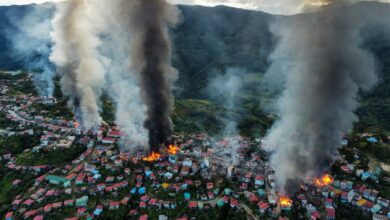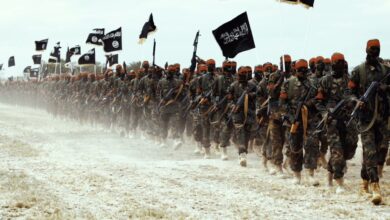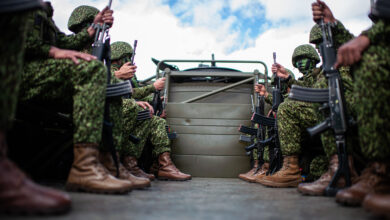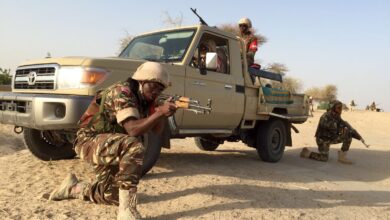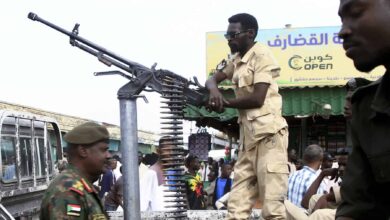An apparent insurgent attack in northern Mozambique killed 16 people on Tuesday in the deadliest attack so far in the remote region, local sources told AFP on Friday, May 31.
Militant Islamists have been blamed for attacks on remote communities in the gas-rich, Cabo Delgado region since October 2017, killing more than 200 people and forcing thousands from their homes.
A Mitsubishi truck carrying passengers and goods was ambushed on a dirt road in the coastal district of Macomia, sources said.
Confirmation of the fatalities only emerged on Friday.
Attackers threw home-made explosives into the truck and then opened fire.
“Eight people were killed in the vehicle and another seven people were found dead at the scene, a sign that they tried to flee,” a local teacher, whose colleague was killed, said.
Another victim died a day after the attack, which according to AFP was the first case of the insurgents using home-made explosives.
Among the dead were three soldiers deployed on the truck to protect it from attack, a community leader told AFP.
“They used homemade bombs. They did not give the military time to react. The group of attackers was at least seven men according to a survivor,” he said.
About 10 injured people were taken to hospital in Pemba by helicopter.
A month of bloodshed
The government and military do not comment on insurgency attacks.
AFP has recorded a total of 14 attacks in May that caused more than 40 deaths.
The militants regularly attack villages, kill local people and burn houses, despite a growing police and military presence in the area.
President Filipe Nyusi has vowed to “neutralize” the threat and sent heavy reinforcements to the region where hundreds of people have been arrested.
“The country is falling victim and we all need to understand the real reasons,” Nyusi said last week in a rare interview with the privately-owned Canal de Mocambique newspaper.
“The defence and security forces are putting their whole resources into this, so we can learn [the insurgents’] motivation and who these people are.”
Attacks have often forced the temporary closure of voting registration stations ahead of October elections, according to the Center for Public Integrity, a civil action group based in the capital Maputo.
Some analysts and journalists have questioned the official narrative blaming Islamists. Various other theories have been put forward, but access to the area is limited, making any theory difficult to substantiate.
Muslim-majority Cabo Delgado province is expected to become the center of a natural gas industry after promising offshore discoveries near Palma. The vast gas deposits could transform the impoverished country’s economy, with experts predicting that Mozambique could even become the world’s third-largest exporter of liquefied natural gas.
But the country’s north has largely been excluded from the economic growth of the last 20 years, creating fertile ground for radical Islamist ideology.
A hardline Islamist group has been blamed for deadly attacks in the province, stoking unrest just as the government pushes ahead with exploration efforts. Communities have been terrorized since October 2017 – about 200 people have been killed and thousands forced from their homes.
The Islamist group was originally known as Ahlu Sunnah Wa-Jama – Arabic for “followers of the prophet” – but commonly referred to by locals and officials as “Al-Shabaab,” although it has no known link to the notorious Somali jihadist group of the same name.
Researchers have said the Ahlu Sunnah Wa-Jama leadership has links to Islamist groups based in Tanzania, Somalia, Kenya and in the Great Lakes region, where some also received training.
Human Rights Watch has accused security forces of serious human rights violations, and several journalists have been arrested in the area.
With reporting from AFP




